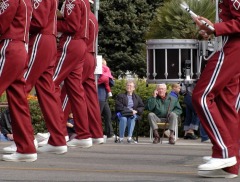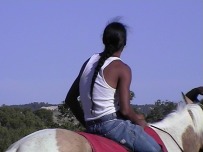
It was Tuesday night, so he called Chan’s and ordered the usual, #22. As usual, he handed the driver a twenty and told him to keep the change. He became violently ill, vomiting for hours. As usual, he ignored the message. He hadn’t listened carefully. The menu options had changed.
Bruce Harris' fiction has appeared in The First Line, elimae, BULL, and Pine Tree Mysteries. He enjoys relaxing with a Marxman.
Bruce Harris' fiction has appeared in The First Line, elimae, BULL, and Pine Tree Mysteries. He enjoys relaxing with a Marxman.





 RSS Feed
RSS Feed